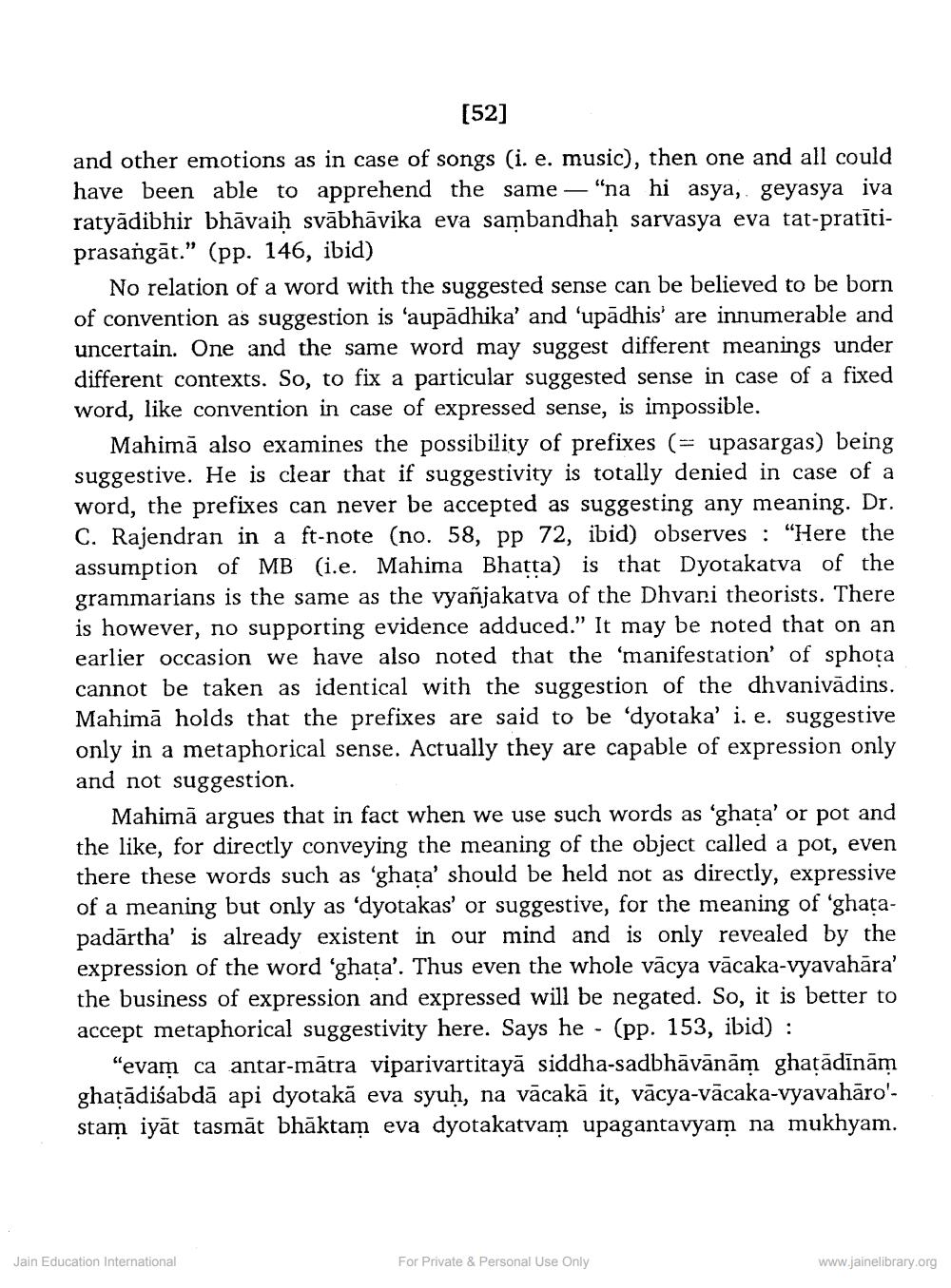________________
[52]
and other emotions as in case of songs (i. e. music), then one and all could have been able to apprehend the same — "na hi asya, geyasya iva ratyādibhir bhāvaiḥ svābhāvika eva sambandhaḥ sarvasya eva tat-pratītiprasangāt.” (pp. 146, ibid)
No relation of a word with the suggested sense can be believed to be born of convention as suggestion is 'aupadhika' and 'upādhis' are innumerable and uncertain. One and the same word may suggest different meanings under different contexts. So, to fix a particular suggested sense in case of a fixed word, like convention in case of expressed sense, is impossible.
Mahimă also examines the possibility of prefixes (= upasargas) being suggestive. He is clear that if suggestivity is totally denied in case of a word, the prefixes can never be accepted as suggesting any meaning. Dr. C. Rajendran in a ft-note (no. 58, pp 72, ibid) observes : "Here the assumption of MB (i.e. Mahima Bhatta) is that Dyotakatva of the grammarians is the same as the vyañjakatva of the Dhvani theorists. There is however, no supporting evidence adduced.” It may be noted that on an earlier occasion we have also noted that the 'manifestation of sphota cannot be taken as identical with the suggestion of the dhvanivadins. Mahimā holds that the prefixes are said to be 'dyotaka' i. e. suggestive only in a metaphorical sense. Actually they are capable of expression only and not suggestion.
Mahimā argues that in fact when we use such words as 'ghata' or pot and the like, for directly conveying the meaning of the object called a pot, even there these words such as 'ghata' should be held not as directly, expressive of a meaning but only as 'dyotakas' or suggestive, for the meaning of 'ghatapadārtha' is already existent in our mind and is only revealed by the expression of the word 'ghata'. Thus even the whole vācya vācaka-vyavahāra' the business of expression and expressed will be negated. So, it is better to accept metaphorical suggestivity here. Says he - (pp. 153, ibid) :
"evam ca antar-mātra viparivartitayā siddha-sadbhāvānām ghatādīnām ghatādiśabdā api dyotakā eva syuh, na vācakā it, vācya-vācaka-vyavahāro'stam iyāt tasmāt bhāktam eva dyotakatvam upagantavyam na mukhyam.
Jain Education International
For Private & Personal Use Only
www.jainelibrary.org




